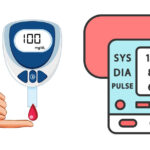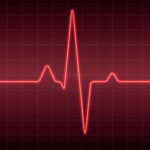Dangers and risks of hypotension. It is often believed that hypotension is less dangerous than hypertension. Could it be true? When your blood pressure is too low, what risks do you face, according to the UK National Health Service?
Sudden drop can be dangerous
Some people may have low blood pressure, also known as hypotension, as a sign of an underlying health condition, especially if it drops suddenly or is accompanied by symptoms.
It is dangerous to experience a sudden drop in blood pressure. For example, a drop from 110 mm Hg systolic to 90 mm Hg systolic can cause dizziness and fainting. A big drop, such as one caused by uncontrolled bleeding, severe infections, or allergic reactions, can be fatal.
Hypotensive shock
A condition know as shock can result from extremely low blood pressure. Shock is characterized by the following symptoms:
Confusion, especially in older people
Essentially, confusion refers to a decline in cognitive abilities, such as our ability to think, learn, and understand. Confusion can lead to short-term memory problems, difficulty carrying out tasks, poor attention span, unclear speech, and difficulty following a conversation.
Cold, clammy skin
As sweat evaporates, it cools your body, making your skin feel clammy and chilly. Having cold and clammy skin can indicate a medical problem if you sweat excessively or sweat without a clear cause (such as a hot day or working out).
Decrease in skin coloration (pallor)
Suddenly reducing blood flow and oxygen to an area of skin, such as your face, can make it appear paler than normal. It can be caused by fatigue, stress, shock, low blood sugar, amenia, frostbite, or a medication reaction.
Rapid, shallow breathing
Taking more breaths in a minute than usual is called tachypnea, which is characterized by rapid, shallow breathing. A person with this condition usually breathes more than 20 times a minute. A child’s resting breath rate can be higher than an adult’s.
Weak and rapid pulse
People with a weak pulse have difficulty feeling their pulses (heartbeats). An absent pulse means you cannot detect a pulse at all. How do you define a rapid pulse? When you are at rest, a heart rate over 100 beats per minute is considered fast. Many health conditions can cause a rapid heart rate, or tachycardia.
When to see a doctor
Seek emergency medical attention if you experience symptoms of extreme low blood pressure (hypotension) or shock. They constitute dangers and risks of hypotension.
During routine health checkups, your provider may monitor your blood pressure if you have consistently low readings. You may find it beneficial to keep a record of your symptoms, when they occur, and what you are doing at the time.





